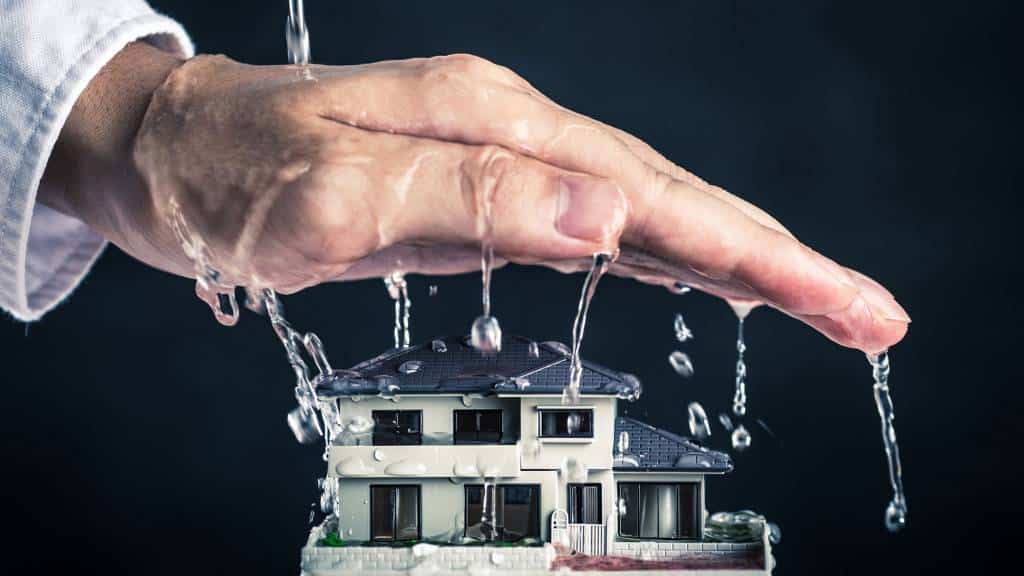Pinpoint Major Triggers for Leak Problems Within Your House
Pinpoint Major Triggers for Leak Problems Within Your House
Blog Article
What're your opinions about How to Find Water Leaks?

Leakages not just trigger waste of water however can likewise trigger unnecessary damage to your home as well as advertise undesirable organic growth. Water leaks might go undetected because many of the pipework in our home is hidden. By understanding and also looking for daily situations that create leaks, you can shield your home from future leakages as well as unnecessary damages. Today, we will consider six leakage causes that may be creating your pipelines to trickle.
Trespassing origins
Many water leakages begin outside the residence instead than inside it. You could see wet patches or sinkholes in your yard, and also that could imply that tree roots are attacking water lines creating water to permeate out.
Corroded water systems
As time goes by, your plumbing system ages as well as deterioration such as rust may begin eating away the pipes. This could be the root cause of staining or warping on your pipes. This asks for an examination with your plumber quickly. If our plumbing system is old, consider replacing the pipelines given that they go to a higher danger of deterioration than the newer designs.
Faulty Pipe Joints
The point at which your pipes connect is often the weakest web link in the waterline. Pipeline joints can wear away over time, resulting in water leakages. The majority of pipe joints are not easily noticeable. If you have loud pipes that make ticking or banging noises, specifically when the hot water is switched on, your pipeline joints are possibly under a lot of stress. It is a good idea to have your plumber check your system once a year.
Instant temperature level adjustments.
Severe temperature changes in our pipes can trigger them to broaden and contract unexpectedly. This development as well as contraction may create splits in the pipelines, particularly if the temperature are below freezing. It would be best if you watched on just how your plumbing works. The visibility of the previously discussed scenarios regularly shows a high danger.
Poor Water Connectors
At times, a leakage can be triggered by loose tubes and also pipelines that provide your appliances. Most of the time, moving is what causes the loose water Connections. You may discover when it comes to a cleaning device, a hose might spring a leak due to shaking throughout the spin cycle. In case of a water links leakage, you may see water running straight from the supply line or pools around your devices.
Blocked Drains
Clogged drains could be aggravating and inconveniencing, however they can sometimes end up creating an overflow causing rupture pipelines. Keep eliminating any kind of products that might decrease your drains pipes that might obstruct them to stay clear of such hassles.
All the above are reasons for leakages but not all water leaks result from plumbing leakages; some leakages could come from roofing leaks. All leakages must be fixed promptly to stay clear of water damage.
Leakages not just trigger waste of water yet can additionally create unneeded damages to your house and advertise undesirable organic development. By recognizing and looking for everyday situations that cause leaks, you can secure your home from future leaks as well as unnecessary damages. Today, we will look at six leak creates that may be causing your pipelines to trickle.
At times, a leakage can be created by loosened tubes and also pipelines that provide your appliances. In instance of a water links leakage, you might see water running straight from the supply line or puddles around your appliances.
How To Check For Water Leak In Your Home
How To Check for Leaks
The average household's leaks can account for nearly 10,000 gallons of water wasted every year and ten percent of homes have leaks that waste 90 gallons or more per day. Common types of leaks found in the home are worn toilet flappers, dripping faucets, and other leaking valves. These types of leaks are often easy to fix, requiring only a few tools and hardware that can pay for themselves in water savings. Fixing easily corrected household water leaks can save homeowners about 10 percent on their water bills.
To check for leaks in your home, you first need to determine whether you're wasting water and then identify the source of the leak. Here are some tips for finding leaks:
Take a look at your water usage during a colder month, such as January or February. If a family of four exceeds 12,000 gallons per month, there are serious leaks.
Check your water meter before and after a two-hour period when no water is being used. If the meter changes at all, you probably have a leak.
Identify toilet leaks by placing a drop of food coloring in the toilet tank. If any color shows up in the bowl after 10 minutes, you have a leak. (Be sure to flush immediately after the experiment to avoid staining the tank.)
Examine faucet gaskets and pipe fittings for any water on the outside of the pipe to check for surface leaks.
Undetected water leaks can happen without the home or business owner even realizing. If you suspect a water leak, but not able to find the source. It is time to contact a professional water leak detection service, The Leak Doctor.
How To Find a Water Leak In Your Home
https://www.leakdoctor.com/blog/How-To-Check-For-Water-Leak-In-Your-Home_AE197.html
I am very fascinated with How to Find Water Leaks and I am assuming you enjoyed the entire blog posting. Sharing is caring. You won't know, you may very well be helping someone out. Thanks a lot for taking the time to read it.
Hot water issues? Connect now. Report this page